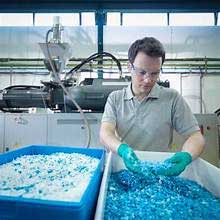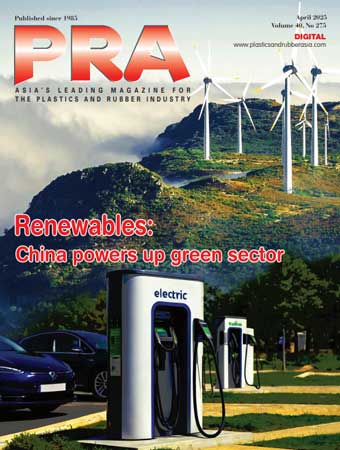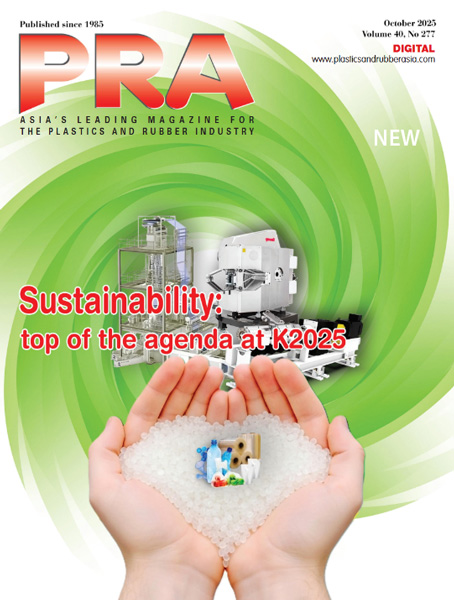Green news: Lotte/Resonac launch recycling of packaging via gasification in Japan; Braskem/Norsk e-Fuel partner to develop e-naphtha as feedstock
Japan’s Lotte Co. and Resonac Corporation have started chemical recycling of used plastic packaging from production waste through gasification at Lotte’s Sayama Plant (Sayama City, Saitama Prefecture). This initiative is being carried out in collaboration with Japan Waste Group. The traceability of this initiative is ensured through a third-party certification system: used plastic packaging waste generated at the Lotte Sayama Plant is collected and pre-processed by Japan Waste, then chemically recycled by Resonac. The resulting chemical products, such as hydrogen, ammonia, and carbon dioxide, are returned to the market through Resonac’s supply chain.

Plastic films used in packaging are typically made from laminate structures combining various types of plastics and aluminium vapour-deposited layers to preserve product quality. Due to the difficulty of separating these materials, there are limited options for effective utilisation.
Lotte has previously converted most of its used plastic packaging into RPF (Refuse Paper and Plastic Fuel) for thermal recycling. However, as society increasingly demands more advanced utilisation of used plastics, there is a growing need to shift toward material and chemical recycling.
The chemical recycling method employed in this initiative involves gasifying used plastics at high temperatures to break them down to the molecular level and regenerate them into chemical products. By transitioning from thermal recycling to gasification-based chemical recycling, Lotte aims to promote the resource recovery of used plastic packaging. In fiscal 2025, approximately 10 tonnes of plastic waste generated at the Sayama Plant is expected to be chemically recycled through gasification.
Lotte adds it will continue to explore advanced methods for reducing plastic waste and promoting resource circulation in collaboration with stakeholders.
Resonac, as well, aims to achieve both enhanced resource circulation and decarbonisation. This initiative leverages the company’s expertise in gasification-based chemical recycling of plastics, which has been in continuous commercial operation at its Kawasaki Plant (Kawasaki City, Kanagawa Prefecture) since 2003, said to be the only such facility in the world that recycles used plastics and textiles into low-carbon chemical products.
In other news, Norway’s Norsk e-Fuel AS, a pioneer in Power-to-Liquid (PtL) technology, and Brazilian polymers firm Braskem, have announced a collaboration to explore the possible integration of e-naphtha into the plastics value chain. This partnership aims to accelerate the development of plastics derived from carbon that would otherwise be released into the atmosphere.

Norsk e-Fuel is driving the industrial rollout of PtL technology by building large-scale facilities that convert fossil-free electricity, water, and captured CO2 into synthetic fuels and feedstocks. The company’s plan foresees at least three plants in operation by 2032, with a combined annual capacity of more than 200,000 tonnes of e-fuels. Around a quarter of this output could be supplied as e-naphtha – a versatile feedstock used to produce plastics.
Meanwhile, Braskem already produces I’m green bio-based polyethylene at an industrial scale, made from sugarcane ethanol, and offers mass balance certified solutions for markets where segregated routes are not yet feasible. By potentially processing e-naphtha into polypropylene and other essential materials, Braskem says it aims to expand its portfolio with innovative plastics that could have a significantly reduced climate footprint.
The collaboration will focus on developing a framework for integrating e-naphtha into plastic production, assessing market opportunities, and engaging with customers seeking circular solutions. It also highlights the role of carbon capture utilisation (CCU) in creating new value chains for the plastics industry, circulating carbon through products, not emissions.
Norsk e-Fuel was founded in 2019 to drive the transition to renewable aviation by establishing the industrial production of sustainable fuels based on CO2 and water. Supported by investors and partners, Norsk e-Fuel is set to bring PtL production to industrial scale.
(PRA)SUBSCRIBE to Get the Latest Updates from PRA Click Here»











